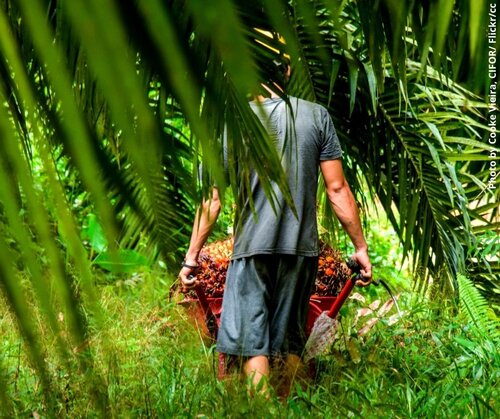
On 7 March 2021, a small majority (51.6 per cent) of Swiss voters approved a trade deal between Indonesia and the European Free Trade Association (EFTA) bloc (Switzerland, Iceland, Liechtenstein and Norway). The Swiss Parliament gave its approval earlier, in December 2019. Parliamentary decisions in Switzerland can be challenged via referendum under certain conditions, however, and an alliance of civil society groups had collected more than 61,000 signatures to strike down this trade agreement.
Palm oil was at the heart of their objections. As part of the deal, Switzerland offered Indonesia tariff reductions on certain palm oil products ranging from 20-40 per cent within limited import quotas; the reductions are to increase over the deal’s first five years, eventually reaching a maximum of 12,500 tonnes per year. Referendum supporters wanted to exclude palm oil from the trade agreement because it is tainted with deforestation and human rights violations.
The result of this kerfuffle is a trade agreement which seems to link tariff reductions to forest protections – the first ever of its kind. This is something Fern has advocated in the EU’s trade agreements with forested countries. Obviously, the Switzerland-Indonesia deal is still more about trading. But its Trade and Sustainable Development chapter requires all vegetable oils and their derivatives to be traded according to the “laws, policies and practices aiming at protecting primary forests, peatlands, and related ecosystems, halting deforestation, peat drainage and fire clearing in land preparation, reducing air and water pollution, and respecting rights of local and Indigenous communities and workers” (Articles 8.10(2):a and 8.10(2):e).
To make the obligation enforceable, Switzerland has enacted an ordinance detailing the domestic process of import control, which de facto moves responsibility for enforcement to the Swiss Authorities. These domestic processes, unfortunately, rely on checking whether palm oil imports comply with certification schemes, mainly the Roundtable on Sustainable Palm Oil (RSPO); yet scientific evidence shows that the world’s leading certification scheme for the crop yielded no improvement in environmental, social and economic sustainability over non-certified estates.
It is regrettable that the innovative trade incentive is not associated with a roadmap to engage the Parties in forest governance reforms in Indonesia. After all, sustainability criteria can be legitimate only if they are adopted through a transparent, deliberative process, with the participation of all relevant groups, including affected forest communities’ representatives. Despite its shortfalls, this innovative mechanism is worth exploring in the context of EU-Indonesia Free Trade negotiations, but only if it moves away from relying solely on certification schemes and supports a more deliberative process and improvements in the EU’s and Indonesia‘s own laws and policies.
Categories: EU-Indonesia Free Trade Agreement, Indonesia
